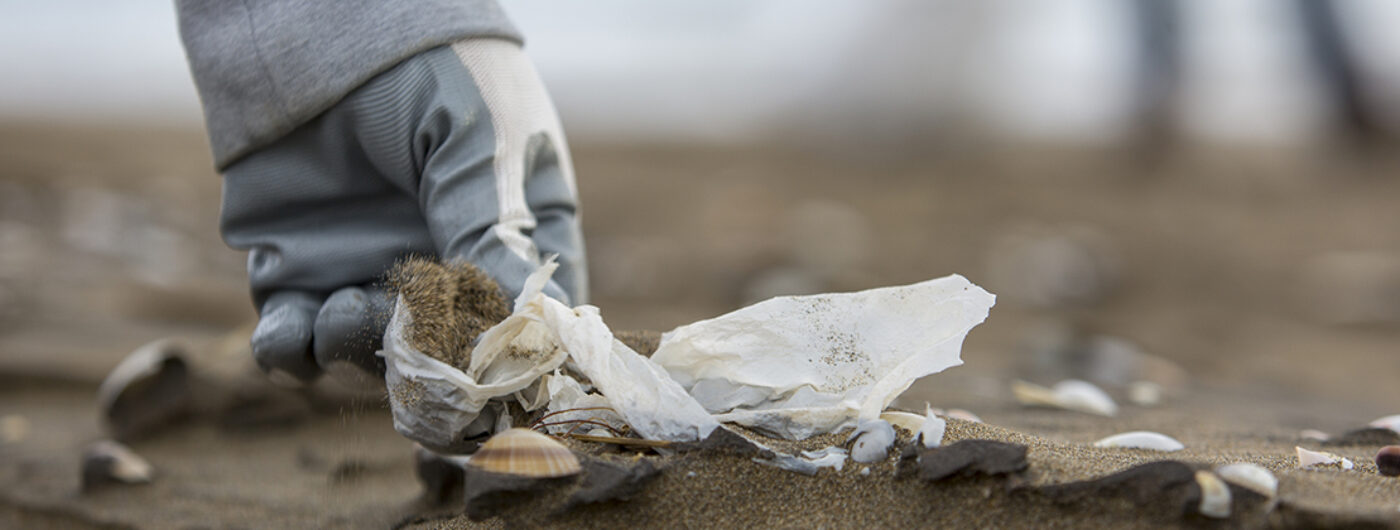
Tackling marine litter and plastic pollution to stop species loss and degradation of the Mediterranean Sea
- Part of a wider UfM supported Plastic Busters Initiative spanning across the whole Mediterranean basin, Plastic Busters MPAs is an Interreg Med project aiming at maintaining biodiversity and preserving natural ecosystems in pelagic and coastal marine protected areas.
- Marine litter research expeditions have been carried out in the Pelagos Sanctuary (Italy), the Tuscan Archipelago National Park (Italy), the National Marine Park of Zakynthos (Greece) and the Cabrera Archipelago Maritime-Terrestrial National Park (Spain).
13 July 2020. Everyday life in the Mediterranean has been disrupted and changed over the last few months but the work that Plastic Busters MPAs carried out first at sea and then in the lab can now continue as the samples collected during the marine litter research expeditions are being processed.
Over the spring, summer and autumn months of 2019, harmonised methodologies for monitoring the presence and impacts of marine litter in Mediterranean MPAs were tested. The marine litter research expeditions were carried out in the Pelagos Sanctuary (Italy), the Tuscan Archipelago National Park (Italy), the National Marine Park of Zakynthos (Greece) and the Cabrera Archipelago Maritime-Terrestrial National Park (Spain).
Researchers also carried out surveys to assess the amounts, types and sources of marine macro- and micro-litter found on beaches, the sea surface and the sea floor. In order to shed light on the impact of marine litter on endangered species, skin biopsies were performed on key species such as fin whales, sperm whales, striped dolphins and bottlenose dolphins. Faeces samples from monk seals and blood and feather samples from the seabird Scopoli’s shearwater were also collected.
Other biota samples collected from different species such as isopods, lanternfish, bogues, anchovies, mussels, sea urchins, holothurians, etc. will be used to assess the ingestion of marine litter and its effect on marine biota.
Training courses
As part of the transferring activities foreseen in the Plastic Busters MPAs project, a training course on the harmonised monitoring of marine litter will be held in spring 2021 around Dubrovnik (Croatia), if the COVID-19 pandemic allows it to go ahead. This training will focus on how to carry out effective marine litter monitoring consistent with the MSFD and the Barcelona Convention frameworks. This experience will consist of a classroom activity followed by the monitoring of macro- and micro-plastics on board vessels, and of the laboratory analyses of the collected samples.
The Plastic Busters MPAs project entails actions addressing the entire marine litter management cycle, from monitoring and assessment – as seen above – to prevention and mitigation.
To date, 8 demos are underway to showcase appropriate measures to prevent the generation of marine litter in Marine Protected Areas, which address the following 6 types of measure: (1) Single use plastics (SUPs)-free beach bars; (2) Adopt-a-beach; (3) Establishing a derelict fishing gear management scheme and promoting co-responsibility to tackle fisheries & aquaculture related litter; (4) Developing a network of collection points for beverage containers made of PET, metal and glass; (5) Setting up a reusable cup delivery system for beach bars and beach festivals; (6) Promoting the sustainable management of mussel farming nets.
These demo projects will be implemented during this summer and summer 2021 in the Strunjan Landscape Park (Slovenia), the Thermaikos Gulf Protected Areas (Greece), the Cabo de Gata-Níjar Natural Park-UNESCO Global Geopark (Spain), the Ebre Delta Natural Park (Spain) and the Miramare MPA (Italy).
More information
https://plasticbustersmpas.interreg-med.eu/
“Plastic Busters in the Lab” section
Video of the Plastic Buster project

